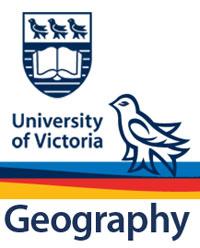Approach to teaching and learning:
“Education either functions as an instrument which is used to facilitate integration of the younger generation into the logic of the present system and bring about conformity or it becomes the practice of freedom, the means by which men and women deal critically and creatively with reality and discover how to participate in the transformation of their world.” ― Paulo Freire, Pedagogy of the Oppressed
“The really important kind of freedom involves attention and awareness and discipline, and being able truly to care about other people and to sacrifice for them over and over in myriad petty, unsexy ways every day. That is real freedom. That is being educated, and understanding how to think. The alternative is unconsciousness, the default setting, the rat race, the constant gnawing sense of having had, and lost, some infinite thing.” – David Foster Wallace (2011)“Education is the ability to perceive the hidden connections between phenomena” — Havel
Course Tone: Critical Optimism
If you look at the science about what is happening on earth and aren’t pessimistic, you don’t understand the data. But if you meet the people who are working to restore this earth and the lives of the poor, and you aren’t optimistic you haven’t got a pulse. What I see everywhere in the world are ordinary people confronting despair, power and incalculable odds in order to restore some semblance of grace, justice and beauty in this world”. - Paul Hawken (2009)
“Pessimism of the intellect; optimism of the will” – Antonio Gramsci
Root metaphor: The Hatchet and the Seed
Political ecology is a hatchet, cutting and pruning away the stories, methods and policies that create pernicious social and environmental outcomes. The research has another side - [the seed, which looks to cultivate,] preserve and develop specific, manageable and appropriate ways to make a living. - Paul Robbins (2004)
“The inferno of the living is not something that will be; if there is one, it is what is already here, the inferno where we live every day, that we form by being together. There are two ways to escape suffering it. The first is easy for many: accept the inferno and become such a part of it that you can no longer see it. The second is risky and demands constant vigilance and apprehension: seek and learn to recognize who and what, in the midst of inferno, are not inferno, then make them endure, give them space.” - Italo Calvino, Invisible Cities
“Look man, we'd probably most of us agree that these are dark times, and stupid ones, but do we need fiction that does nothing but dramatize how dark and stupid everything is? In dark times, the definition of good art would seem to be art that locates and applies CPR to those elements of what's human and magical that still live and glow despite the times' darkness. Really good fiction could have as dark a worldview as it wished, but it'd find a way both to depict this world and to illuminate the possibilities for being alive and human in it. - David Foster Wallace, Infinite Jest

